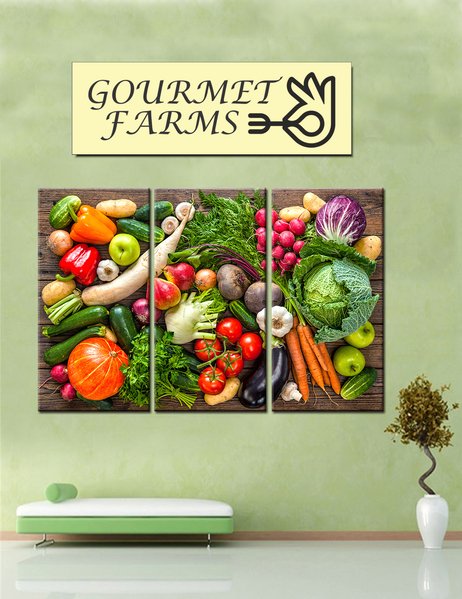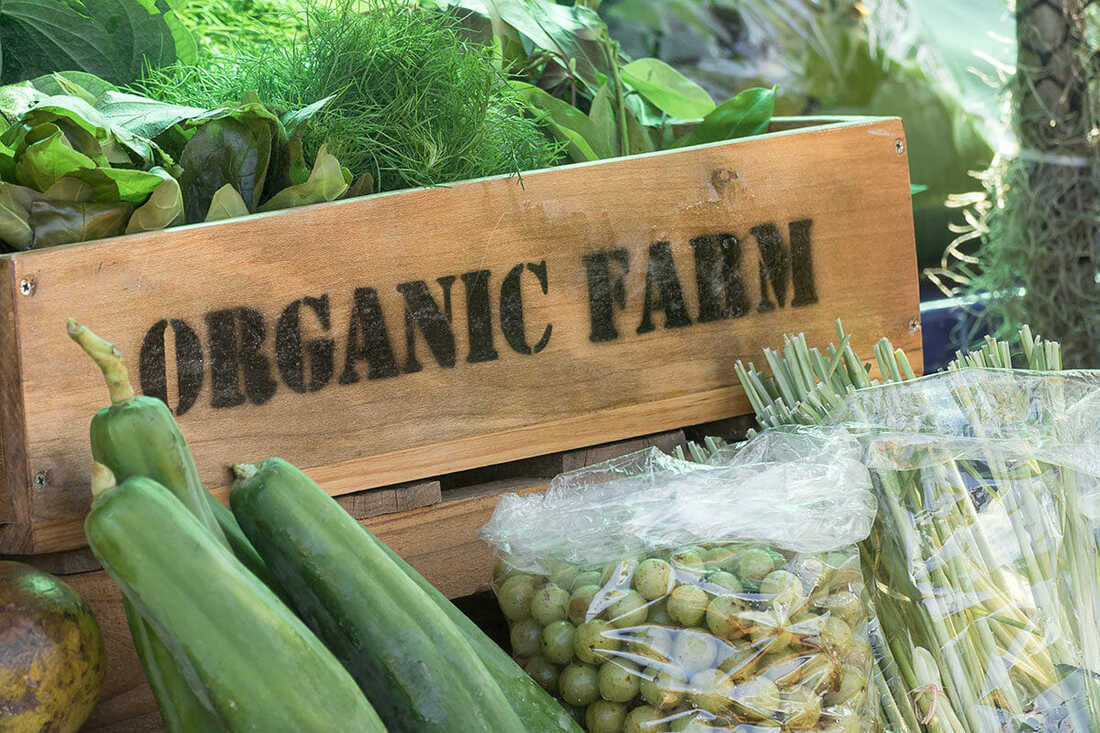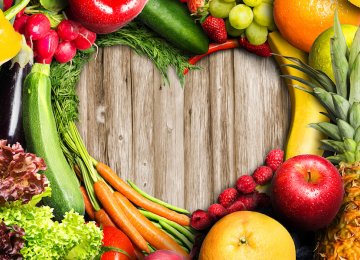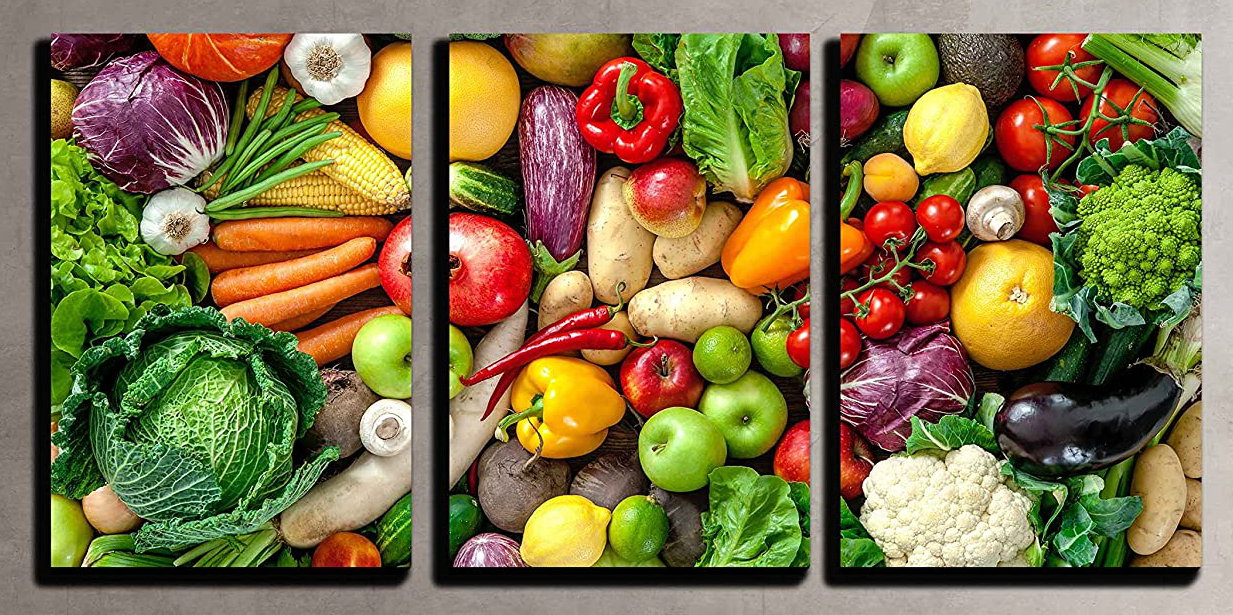Fresh Organic Abundance That Makes A Difference
We care about your food, your health, your community and your planet.
|
Gourmet Farms goes to extraordinary efforts to grow the highest quality of organic fruit and vegetables available today and we also offer many programs that support you ability to create and maintain a healthy and sustainable life style.
|
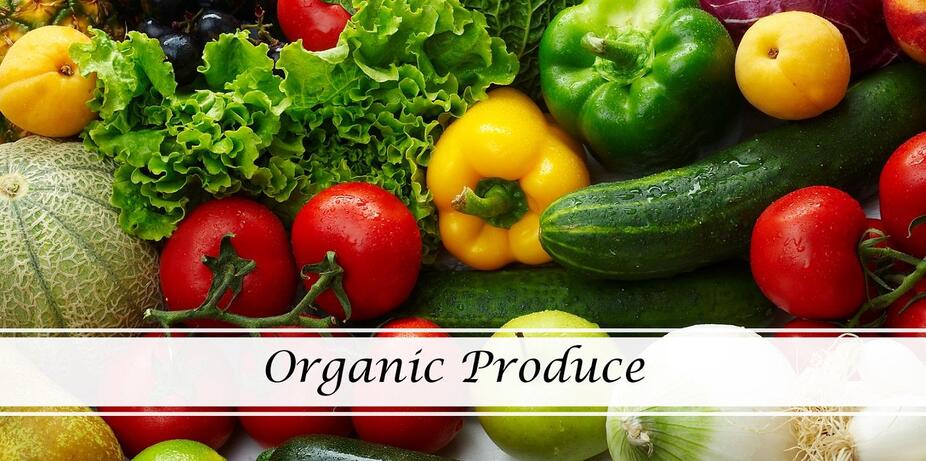
Why Do You Want Organic Food On Your Table?
We are dedicated to growing top quality organic produce for many reasons that are important on a personal, social and global levels. Here we will share our top 8 reasons but there are many more!
We are dedicated to growing top quality organic produce for many reasons that are important on a personal, social and global levels. Here we will share our top 8 reasons but there are many more!
|
1. Our First Reason is FLAVOR!
We grow delicious fruits and vegetables organically for many reasons but not the least of which is that we feel it tastes much better. Our organic produce is not only GMO's and chemical free, but its grown in much richer, healthier and more natural soil full of both the nutrients and organisms that make micro nutrients bio available to the plants. This rich earth yields very vigorous and healthy plants that are nutrient and flavor rich. We then take it to another level by utilizing heirloom and heritage varieties that have been purposely selected for flavor unlike the genetically modified produce you find in many grocery stores that have been created primarily for appearance. At Gourmet Farms it is nutrients and flavor that rules our approach. Our clients seem to appreciate the efforts we make to achieve this level of quality. We grow produce for many of the best chefs on the island. More and more chefs have come to appreciate the difference healthy soil makes to growing healthy plants and how healthy plants simply taste so much better. More to the point they know that most of their clients prefer the tastes of textures of fresh organic fruits and vegetables. The chefs that really care about quality have visited our farms and our outlets and have wholeheartedly approved of our approach to growing and distributing our products along every step of the journey from fields to kitchen. They know we take care to preserve the freshness, taste and aromas of our products. Studies show organic food has higher organoleptic qualities—taste, aroma, and mouthfeel—and how the human senses detect a food’s unique flavor. Many food experts give credit to the soil care practiced by the organic and permaculture approach that we take to farming. Strategic and natural culturing of optimal organic soil leads to well-nourished plants, which in turns yields food with a high nutritional content and optimal flavor. Healthy Bonus - Organic foods often have more beneficial nutrients than their conventionally-grown counterparts and people with allergies to foods, chemicals, or preservatives often find their symptoms lessen or go away when they eat only organic foods. |

2. Organic Foods Have More Antioxidants
Antioxidant levels in organic plants can be up to 69 per cent higher than in conventionally grown foods. A number of lab and animal studies have found that healthy organic food may increase antioxidant content, helping to protect cells from damage. Scientists haven’t conclusively agreed upon why organic plants produce more antioxidants. However, one theory is that they do not need chemical pesticides to protect themselves against disease – they product their own protective compounds, which are antioxidants,
Antioxidant levels in organic plants can be up to 69 per cent higher than in conventionally grown foods. A number of lab and animal studies have found that healthy organic food may increase antioxidant content, helping to protect cells from damage. Scientists haven’t conclusively agreed upon why organic plants produce more antioxidants. However, one theory is that they do not need chemical pesticides to protect themselves against disease – they product their own protective compounds, which are antioxidants,
|
3. Organic Foods Contain More Nutrients
It is a difficult subject to determine conclusively however some research has found that, as well as providing higher antioxidant content, organic foods tend to have higher levels of important micro-nutrients, including vitamin C, zinc and iron. One study found that berries and corn grown organically contained 58 per cent more antioxidants and around 52 per cent more vitamin C than non-organic berries and corn. |
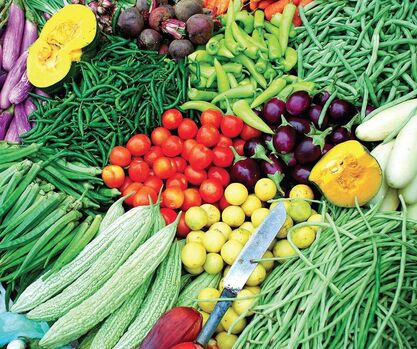
4. Organic Foods Lessen Consumption Of Chemicals And Reduces Resistant Bacteria
As the battle over genetically engineered food and the use of chemical fertilizers rages on, many people are choosing to opt for organic food where possible, to avoid the risk, despite the fact that there is no significant evidence to date suggesting GM foods are dangerous. There is, however, evidence to suggest that consuming organic foods may reduce your exposure to pesticide residues and antibiotic-resistant bacteria. One particular study found that levels of the extremely toxic metal, cadmium, were 48 per cent lower in organically grown produce, and pesticide residues were four times more likely to be found in conventionally grown crops. This sounds more significant than it is, because the levels of cadmium and pesticide residue in the non-organically grown produce were still below the safety limits. However, there is a concern among some scientists that cadmium can accumulate in the body, potentially causing harm in the long-term.
As the battle over genetically engineered food and the use of chemical fertilizers rages on, many people are choosing to opt for organic food where possible, to avoid the risk, despite the fact that there is no significant evidence to date suggesting GM foods are dangerous. There is, however, evidence to suggest that consuming organic foods may reduce your exposure to pesticide residues and antibiotic-resistant bacteria. One particular study found that levels of the extremely toxic metal, cadmium, were 48 per cent lower in organically grown produce, and pesticide residues were four times more likely to be found in conventionally grown crops. This sounds more significant than it is, because the levels of cadmium and pesticide residue in the non-organically grown produce were still below the safety limits. However, there is a concern among some scientists that cadmium can accumulate in the body, potentially causing harm in the long-term.
|
5. Organic Foods Have Lower Nitrate Levels
Nitrates consist of three oxygen atoms and one nitrogen atom. When exposed to bacteria in the mouth or enzymes in the body, nitrates turn into nitrites, which then either turn into nitric oxide or nitrosamines. Nitric oxide is good for the body, but when nitrites are exposed to heat, along with amino acids, they can turn into nitrosamines, which are potent carcinogens. High levels of nitrate have been linked to an increased risk of cancer. Organic crops have lower levels of nitrate than conventional crops, with some studies suggesting nitrate levels are 30 per cent lower. |
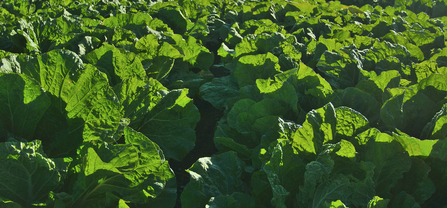
6. Organic Farming Is Better For The Environmental
There are a number of benefits to the environment through organic farming rather than conventional farming. For a start, it encourages sustainability over the long-term. Changes in the environment occur slowly over time, and organic agriculture looks at the medium and long-term effect of their agro-ecosystems. The ethos of organic farming involves an ecological balance, taking a proactive approach, instead of treating problems as they emerge with things like chemicals. Environmentally-friendly methods like crop rotation, inter-cropping, symbiotic associations and minimum tillage are used to improve soil, encouraging natural formation and structure and creating more stable systems. This increases nutrient and energy cycles and improves the soil’s nutrient and water retention ability.
Synthetic fertilizers and pesticides, used in non-organic farming, have caused significant groundwater pollution, which has become a major problem in certain areas all around the world. Organic farms are prohibited from using chemical fertilizers and pesticides, significantly reducing groundwater pollution. In particularly affected areas, converting to organic farming is being used as a restorative measure.
There are a number of benefits to the environment through organic farming rather than conventional farming. For a start, it encourages sustainability over the long-term. Changes in the environment occur slowly over time, and organic agriculture looks at the medium and long-term effect of their agro-ecosystems. The ethos of organic farming involves an ecological balance, taking a proactive approach, instead of treating problems as they emerge with things like chemicals. Environmentally-friendly methods like crop rotation, inter-cropping, symbiotic associations and minimum tillage are used to improve soil, encouraging natural formation and structure and creating more stable systems. This increases nutrient and energy cycles and improves the soil’s nutrient and water retention ability.
Synthetic fertilizers and pesticides, used in non-organic farming, have caused significant groundwater pollution, which has become a major problem in certain areas all around the world. Organic farms are prohibited from using chemical fertilizers and pesticides, significantly reducing groundwater pollution. In particularly affected areas, converting to organic farming is being used as a restorative measure.
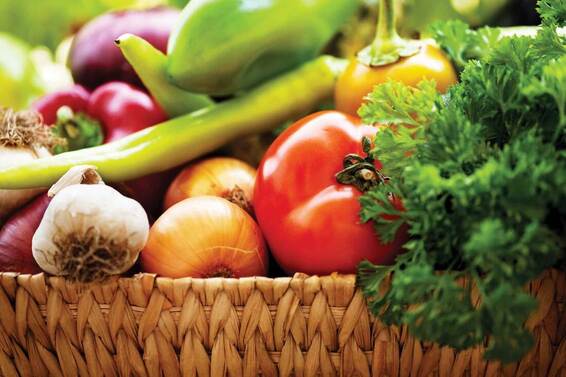
7. Organic Farming Fights Climate Change
Organic agriculture also helps farmers adapt to climate change by strengthening agro-ecosystems, diversifying crop and livestock production, and building farmers’ knowledge of the earth. On top of that, organic farming reduces non-renewable energy use by decreasing the need for chemicals, which require high quantities of fossil fuel to be produced. It sequesters carbon in the soil, helping to mitigate the greenhouse gas effect and global warming, however, the research conducted on this so far is rather limited. In terms of biodiversity, organic farming takes into account gene adaptation, local ecosystems and species to improve disease resistance, soil, gene pools and local wildlife habitats. A study that looked at 766 scientific papers on the matter concluded that organic farming produced more biodiversity than other farming systems.
Organic agriculture also helps farmers adapt to climate change by strengthening agro-ecosystems, diversifying crop and livestock production, and building farmers’ knowledge of the earth. On top of that, organic farming reduces non-renewable energy use by decreasing the need for chemicals, which require high quantities of fossil fuel to be produced. It sequesters carbon in the soil, helping to mitigate the greenhouse gas effect and global warming, however, the research conducted on this so far is rather limited. In terms of biodiversity, organic farming takes into account gene adaptation, local ecosystems and species to improve disease resistance, soil, gene pools and local wildlife habitats. A study that looked at 766 scientific papers on the matter concluded that organic farming produced more biodiversity than other farming systems.
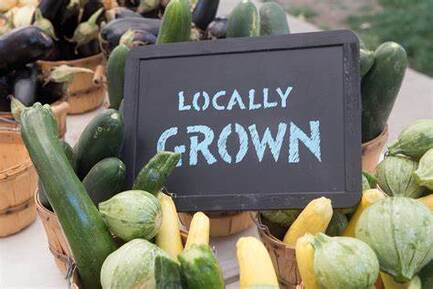
8. Local Organic Farming reduces your food footprint.
By reducing the miles your food travels we not only reduce the environmental footprint of the food you consume but most importantly it supports your local economy. You can meet us and talk to us about why we put our time and energy into growing your food as carefully as possible. When you support a local business you are supporting your neighbors that also spend their money locally providing even more employment for your community.
By reducing the miles your food travels we not only reduce the environmental footprint of the food you consume but most importantly it supports your local economy. You can meet us and talk to us about why we put our time and energy into growing your food as carefully as possible. When you support a local business you are supporting your neighbors that also spend their money locally providing even more employment for your community.
These are just 8 of the reasons to buy from Gourmet Farms.
Gourmet Farms provides all organic and all local produce, so its the healthiest for you and our planet.
Gourmet Farms provides all organic and all local produce, so its the healthiest for you and our planet.
Your Local Organic Source In Victoria, British Columbia.
Call Us About Our Organic "Field to Door" deliveries.
Order Today at 888-844-3444 x7 or fill out the form below.
Call Us About Our Organic "Field to Door" deliveries.
Order Today at 888-844-3444 x7 or fill out the form below.
|
Gourmet Farms - Your guide to healthy and sustainable living.
|
We Love Regenerative Approaches To Growing Food.
Gourmet Farms connect young farmers
with organic land owners that want their land to be making a difference. Fresh Organic Abundance That Makes A Difference. Our Farm Fresh Number is 778-922-0778 For Events, Media and Education Call 888-844-3444x7 |
We care about your food, your health, your community and your planet.
Our Team of organic food workers, educators and mentors are dedicated to positive Eco social initiatives that supports sustainable lifestyles, multi-cultural heritage, regenerative food systems and our natural Eco-systems.
Our Communities - Based in Victoria Gourmet Farms offers services and programs in the following communities: Chemainus | Colwood | Duncan | Esquimalt | Gulf Islands | Ladysmith | Langford | Lake Cowichan | Metchosin | Sidney | Sooke | Victoria
Our Sponsors: We gratefully thank the following organizations for their support:
ecoearthwalk.ca earthworksecovillage.com naturalbuildings.ca mediaartsgroup.ca turnkeywebsitesolutions.com aerialphotographics.ca sailingimaging.ca graphicexposure.ca,
Our Respect - We gratefully and respectfully acknowledges that Gourmet Farms operations take place on unseeded First Nations territories. We acknowledge and are saddened by the on-going impact of colonization.
Our Communities - Based in Victoria Gourmet Farms offers services and programs in the following communities: Chemainus | Colwood | Duncan | Esquimalt | Gulf Islands | Ladysmith | Langford | Lake Cowichan | Metchosin | Sidney | Sooke | Victoria
Our Sponsors: We gratefully thank the following organizations for their support:
ecoearthwalk.ca earthworksecovillage.com naturalbuildings.ca mediaartsgroup.ca turnkeywebsitesolutions.com aerialphotographics.ca sailingimaging.ca graphicexposure.ca,
Our Respect - We gratefully and respectfully acknowledges that Gourmet Farms operations take place on unseeded First Nations territories. We acknowledge and are saddened by the on-going impact of colonization.
Site powered by Weebly. Managed by Rebel.ca

